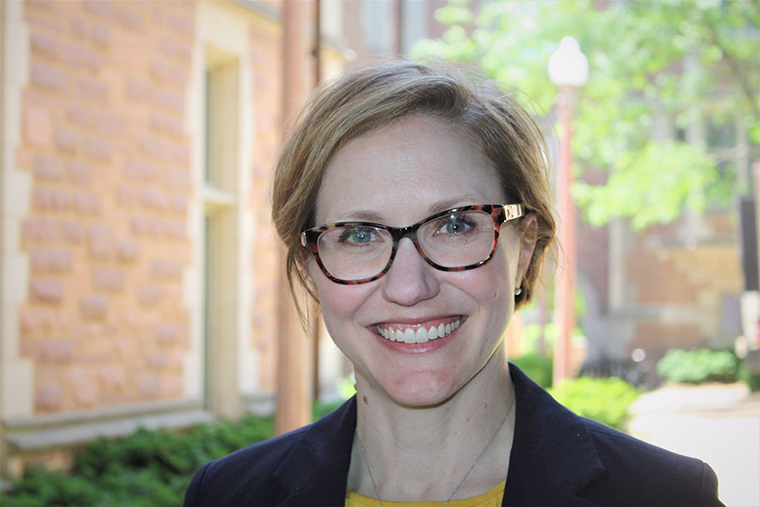As more U.S. cities debate whether to remove fluoride from their water systems, public health experts at the Prevention Research Center (PRC) at Washington University in St. Louis are providing clear, evidence-based tools to help local communities make informed choices.
Fluoride, long hailed as one of the most effective and low-cost ways to prevent tooth decay, has become the focus of renewed national attention. This spring, U.S. Health and Human Services Secretary Robert F. Kennedy Jr. publicly urged the Centers for Disease Control and Prevention (CDC) to stop recommending water fluoridation - a move that alarmed many public health leaders. Though the CDC's guidance is nonbinding, it significantly influences local governments and health departments nationwide.
Kennedy cited widely disputed claims that fluoride harms brain development and bone health. But leading health organizations - including the CDC, the World Health Organization and the American Dental Association - continue to support fluoridation as a proven public health success. Poor oral health is also linked to heart disease, diabetes, respiratory health and pregnancy complications.
Kennedy's remarks have energized fluoride opponents and injected confusion into policy conversations - particularly in rural areas where public health infrastructure is already fragile.
"Water fluoridation is one of the most effective and equitable public health interventions of the past century," said Ross C. Brownson, director of the PRC and the Steven H. and Susan U. Lipstein Distinguished Professor in the WashU School of Public Health. "Removing it often increases dental costs and leads to more untreated decay and disproportionate impact on low-income populations."
The rural reality
In rural Missouri, where dentists are scarce and insurance coverage is thin, nearly half of third-grade children have experienced tooth decay - with higher rates in non-fluoridated areas. Without fluoride in the water supply, children face more untreated cavities, which can lead to chronic pain, missed school and emergency dental care - often at a much higher cost.
Against this backdrop, the Rolla (Mo.) City Council voted in January to begin the process of removing fluoride.
The months that followed were filled with public debate and outreach - including efforts from the PRC and its partners to ensure that residents and city leaders had access to sound scientific information.
Timely connection sparks action

For Renee Parks, senior research manager at the PRC in the School of Public Health and a former Rolla resident, the debate hit close to home when she learned in December that the city council was considering removing fluoride.
The timing was serendipitous - weeks earlier, she had served as a teaching assistant in "Translation of Epidemiology to Policy," a WashU course taught by Brownson. Now in its ninth year, the course trains graduate students to use epidemiology to shape public health policy, with a focus on health equity. Parks had just guided students in developing strategies to explain the benefits of community water fluoridation.
"I helped the groups think through key audiences, gathering information, the key message, understanding opposing forces, effective channels, and the source - who should deliver the message," she said.
With support from PRC colleague Madisen Brewer, a public health communicator skilled in data visualization, Parks turned her attention to Rolla. She helped create a tailored infographic highlighting local oral health data, recent water fluoride levels and national scientific guidance. The one-page resource was designed to be clear, nonpartisan and accessible to Rolla residents and leaders.
Additionally, Parks collaborated with members of the Ozark Dental Society, the Phelps-Maries Counties Health Department, Missouri University of Science and Technology and the Rolla School District. She also helped local advocate Patti Fleck draft a letter to the Phelps County Focus newspaper, which, along with the PRC's infographic, was shared with city officials ahead of the vote.
Ultimately, the Rolla City Council voted May 19 to preserve fluoride in the city's water supply.
"I would like to thank WashU for all of the relevant information gathered and produced in a professional and simplified format that allowed our city council to come to a quick and educated decision regarding fluoride in our drinking water," said Kevin Greven, mayor pro tem and a Rolla city councilman. "The well-being of the people that live in Rolla, and especially our children, was the driving force in this decision, and I believe based on this information we came to the correct conclusion."
Strengthening public health dialogue
The debate in Rolla reflects broader challenges. Across the country, local governments - especially in underserved areas - increasingly are facing politically charged public health decisions.
That's where the PRC's work becomes vital. Translating research into action is core to its mission - whether through clear, community-ready infographics, concise policy briefs or partnerships that put evidence into the hands of decision-makers.
Currently, the PRC is working with the Be Healthy QC coalition in the Quad Cities region of Illinois and Iowa to highlight how trails and greenways can improve community health - and how policymakers can support them.
In a time of growing misinformation and political pressure, WashU researchers are cutting through the noise with scientific data and trusted guidance to equip leaders to make informed decisions.





